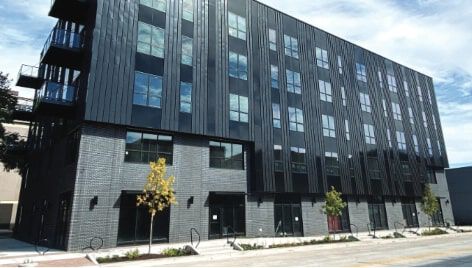Protecting Multi-Dwelling Unit Internet Data Flow Via Robust Cryptographic Protocols for Safeguard User Confidentiality and Information Integrity
Protecting Multi-Dwelling Unit Internet Data Flow Via Robust Cryptographic Protocols for Safeguard User Confidentiality and Information Integrity
Blog Article
Within the current digital world, securing internet data is increasingly important than ever, particularly in Multi-Dwelling Buildings (MDUs) such as apartment complexes and condo settings. These settings frequently have many residents utilizing the same web connection, which can result to possible security threats. To guarantee that users' confidentiality and data security are maintained, it is vital to implement strong coding protocols. Data encryption is a method that encodes data, rendering it unreadable to anyone who do not have the appropriate key to decrypt it. This process helps maintain personal data safe from hackers and unauthorized access.
One of the widely commonly used coding protocols is SSL Socket Layer (SSL) and its replacement, TLS Layer (TLS). These protocols create a secure connection between a user’s device and the web, guaranteeing that any data transferred remains private. When tenants in an MDU access sites that employ SSL/TLS, their personal information, including login credentials and credit card details, is secured. This implies that although when someone attempts to intercept the data, they would merely see a jumble of letters and digits, rendering it nearly unfeasible to understand. By encouraging the use of such protocols, MDUs can significantly improve the safety of their residents' internet activities.
A further crucial encryption method is VPN Private Tunnel (VPN) solutions. A VPN establishes a protected tunnel for internet data, which safeguards users from invasive eyes, especially when using public wireless connections. In an MDU, where many tenants may connect to the identical service, employing a VPN can assist guarantee that personal internet activities stay private. This is especially important for tasks including internet transactions or accessing confidential data. By promoting the use of VPNs among residents, MDUs can cultivate a more secure internet space and help safeguard against site information leaks.
Alongside these encryption methods, it is vital for MDUs to educate their residents about the significance of online security. Many people may not be aware of the threats linked with utilizing common internet services. Providing information on how to recognize phishing attempts, the importance of robust credentials, and the benefits of using encrypted sites can enable residents to take charge of their internet safety. Workshops or informational sessions can be effective ways to increase knowledge and encourage best habits for online security.
Finally, MDUs should consider collaborating with internet service companies (ISPs) that emphasize security and provide enhanced coding features. By collaborating with ISPs that utilize strong encryption standards, MDUs can guarantee that their residents have availability to protected internet services. This partnership can lead to improved general safety for the entire building, as well as enhanced confidence among tenants. By taking these measures, MDUs can establish a safer internet space, protecting resident privacy and data security in an ever more interconnected world.